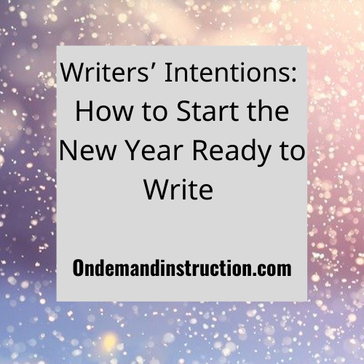 No matter what type of writing you do: memoir, short story, poetry, or novels, there are times when your creative energy wanes. Sometimes, you fall off track and lose the plot of your story. Sometimes, life gets the better of you, and there’s no time to write. And sometimes, your energy just runs out. When your tanks run low, taking a moment to reset your intentions can support your writing practice. At some point in your life, you have probably set resolutions for the new year. Perhaps you wanted to lose weight, eat healthier, be more productive, or find your true love. Whatever your goal was, setting a new year’s resolution is one way that people take a moment to put into words the goal they want to achieve. Why Resolutions Don’t Always Work Unfortunately, if your resolution didn’t stick for very long, you are not alone. For most of us, stating a resolution doesn’t put us on the path to achieving our goals. And for many of us, the resolution itself may be the issue. When you set a resolution, you accept a viewpoint that we aren’t doing enough, aren’t good enough, or aren’t worthy. A resolution tends to be focused on the problem rather than the solution. A resolution can presuppose that a major change is needed for us to move forward, and that thinking can be a negative for some people and may lead to the resolution’s failure. What is an Intention? An intention is the act of setting a goal that is more focused on the journey toward the goal. An intention tends to be focused on the solution rather than on the problem. Writers are natural planners. Since you plan a story, a poem, or a novel before sitting down to write, creating a plan to meet your goal is a similar process. Once you set your goal, making it to the end result is a process you have been through many times. Example of a Writers’ Intentions for the New Year I received an email today from a writer I worked with earlier in the year. She sent a year-at-a-glance message to people connected with her work. In her message, she outlined projects that invigorated her and projects that drained her. She listed her plans for the new year: start a new book, write more blog posts, get two articles published before summer, and attend an upcoming writer’s workshop. Nowhere in her message did she indicate that she needed to make a major change to her writing life, rather she outlined the small adjustments that she intends to drive her writing career to its next level. She emailed a bulleted list with a few things she intends to do this year with her writing. Simple. Set Your Intentions to Write Think of one writing goal that you would like to accomplish. A small goal is a good one, because you can achieve it in a shorter time period and be able to move onto another, larger goal later. Once you have your goal in mind, what is a reasonable period of time needed to accomplish it? What resources, tools, or material do you need to accomplish this goal? If you need to get things in order to accomplish this goal, do that first, then start into your plan and achieve your goal. Writing Can Be Hard Work but It Is Worth the Effort Sometimes, writing is easy. You sit down with a hot cup of coffee and the words magically flow from your fingers as though you tapped into a creative stream in the universe. Other times, you may feel distracted, overwhelmed, or discouraged. These experiences happen to all writers, so try to be kind to yourself when in a low point with your writing. Give yourself a break and set an intention to move your writing forward. Writing can be hard work, but it is worth the effort when you see your words on the page. Related Blog Posts
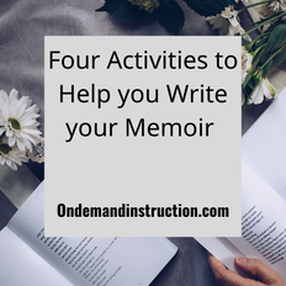 Regardless of which writing project you are working on, you are likely to run into challenges along the way. Inevitably, writers run out of energy, get distracted by other activities, and lose the momentum to keep their projects moving forward. Even professional writers report that sometimes keeping a project going can be quite a challenge. For memoir writers, the predicament can be complicated. As we look more closely at our past experiences, we sometimes have to process personal emotions, thoughts, and memories that may have been better off left alone. Yet, sifting through the rubble of yesterday is part of the process, and as we continue forward, even the darker days of searching through the shadows can reveal valuable stories to be included in our memoirs. Too, searching through old memories can mean we need time away from the writing to work out where to go next. As we dig into our past memories, we oftentimes find that our memories are less detailed than we once recalled or our adventures may have lost the emotional intensity we once felt about them. When we sift through our memories, the work is not just once step in the writing process but a step in the process of understanding ourselves better. So, having acknowledged that memoir writing can be more complicated than other writing styles, are there activities writers can try to make that process a bit easier? When memoir writing, the more writers engage with the writing process and continue to search through their memories, the easier the process can become. With time, writers become more adept at identifying which memories will produce valuable stories to share and which ones are better left alone. To achieve an understanding of one’s memories and how well they will work within the memoir structure, take steps to locate and work with more memories. Reaching into the past repeatedly will help writers to access better memories that can be transferred into the final book, the memoir. Re-read a book you loved in childhood What were your favorite childhood books? I remember my sister had a tattered copy of The Velveteen Rabbit, and our youngest sister had a copy of The Wind in the Willows that looked like it had been read a thousand times. When I was a kid, I had a book of Mother Goose stories and another called 365 Bedtime Stories. My sister found it in an old box of things headed out for donations, and when I saw the cover, dozens of memories of hearing tiny, 5-minute long stories at bedtime came rushing back. Having the book in my hands helped me remember certain aspects of being a child who got to experience bedtime stories. But, when I opened it and read through a dozen of the stories, I was able to recall small details of what would happen next, which characters were included, and what happened in the stories. In short, I was a five-year-old child again, fully immersed in those memories. Having a book from our past can bring back memories in a different way. The book allows us to re-experience the story, and that story can bring us back to memories from long ago. Visit a place you loved Have you ever visited an old haunt and wondered at the size difference? Many people travel to a once-beloved location and find that somehow it shrunk over the years. When we were younger, places held a different point of reference for us, and we sometimes felt small and easily effected by places. Visiting places where we made memories can be a powerful experience to reconnect with our former selves. When in a place, we quickly identify the details that are the same (the paint color, the floor tiles, the small windows, the light coming in the front door), and that experience of being in such a space can bring our memories flooding back. Sort photos, letters, and keepsakes If you are anything like my family, then you have boxes of keepsakes sitting in a closet in your house. I think my sisters and I each have a box or two filled with photos of childhood, letters we received from our grandparents, trophies and medals, and all kinds of small keepsakes. These mementos are the souvenirs of our full and well-lived lives. They provide the details that remind us who we were and the paths we have traveled to become the people we are. Reconnecting with these keepsakes can be helpful to memoir writers hunting for stories to share. Share a memory Believe it or not, one of the best ways of tapping into your memories is to share them. Telling another person about an important event in your life, a time when you learned a lesson, or a moment that meant more than the others is an opportunity not only for the person hearing your story but for you. When we share our stories, we reconnect ourselves to the past and reach back to find the details that made our life experiences meaningful. The process of writing a memoir can be daunting. Sometimes, the memories can be fleeting, and sometimes they can be exhausting. In both situations, writers can be pulled out of the writing process and distracted into giving up. Instead, reach out again to find those memories worth sharing by engaging in an activity that helps you to connect with those memories. Related Blog Posts
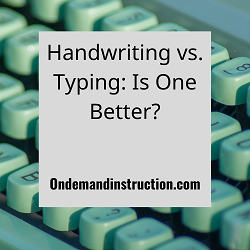 What do Barack Obama, Joyce Carol Oates, Neil Gaiman, and Tom Wolfe have in common? They all write their books by hand- yes, by hand with pen and paper. Today, we have become so dependent on keyboards that we have lost the art behind handwriting, and it could be affecting our creativity. I remember senior year of high school. I submitted a ten-page research paper that was handwritten, in what was then, pretty decent penmanship. I didn’t have access to a typewriter, and although my high school had word processors and computers for students to use, I had no idea how to use one. My teacher said penmanship made her eyes hurt and told me it was the last paper she’d accept in longhand. My determination to stick with pen and paper lasted me through college, as I wrote out every essay by hand before typing it on a 1960s typewriter in freshman and sophomore years before I upgraded to a word processor. For me, I couldn’t compose at the keyboard; I needed a pen in my hand (and a cup of coffee in the other) to get the words flowing. During class one day, a professor asked questions about the writing process, and I shared my experience of combining both longhand and typed steps to create a piece. She was clearly shocked and recommended I practice composing at the keyboard to save time. Learning to think and type at the same time took me years, and once I did, guess what happened? My handwriting became illegible, I started writing longer pieces more quickly, and I lost some of the joy of writing. As a Gen Xer, my experience has similarities to others my age, but younger people never combined the two styles of writing and have written exclusively on a keyboard their entire lives. Does it really make a difference how we write? Actually, it can. When we write by hand, we can go through a different creative experience than when we type, and the pieces we produce can be different. When we write longhand, the process of composing sentences is slowed because we tend to handwrite slower than we type. This slowing changes the creative process, because it allows the mind to connect ideas, ask connected questions, and think through other ideas before writing the next sentence. While working with creative ideas, writers who handwrite can make interesting connections to drive their stories forward. This could increase productivity and lessen the likelihood of the dreaded writer’s block. As well, handwriting is visual in a way that typing never can be. We are a highly visual society, so being able to see our words composed on the page can reinforce our confidence with the creative process. It also allows for the option of doodling and drawing in the margins, which can put a visual to a story. And it can allow us to edit directly on the page so that we can still see the original words; whereas typing deletes the typed words and leaves us only with the current version of the text. Being able to see the words on the page at various editing stages can help the writer stay connected to the story and build on its intricacies over time. Educational research shows that handwriting helps writers process information. We learn more, we understand more, and we are able to make more connections when we take notes and write by hand. If there is anything writers need when they are composing it is to be able to learn, understand, and make connections. As well, we are more likely to tap into another layer of creativity when we write by hand, because penmanship itself is an art form. If you remember people talking about identifying a person’s qualities by analyzing their handwriting, then you’ll remember how important the artfulness of penmanship can be. The admirable attributes of handwriting don’t end there. Happily, the world has yet to connect Facebook, Google, or other writer-distracting apps to paper. Many writers today admit they are easily distracted while writing and don’t produce as much quality work as they would like to. Well, if you can reconnect with pen and paper, you may be able to leave social media’s endless scrolling behind during your creativity time. So, is typing really so bad? Not really, no. Many writers choose the keyboard for a variety of reasons including: comfort, composition speed, and combining the writing process steps. I’ve met more than a few people whose hands hurt when they handwrite, so using a keyboard is more comfortable for them. Too, writers have the ability to compose longer pieces at the keyboard in shorter periods of time (as long as they stay focused and are quick typists). As well, writers have also reported that they can type up an outline of their ideas and use that to type up the paragraphs. Whether it’s a short story, an essay, or a novel, using a word processing document to move from one stage to the next can lessen the work and help writers stay organized. If you are a writer who loses everything from your keys to Post-it Notes, carrying around stacks of paper might be a bad idea. But, if you have a secure backup system with your computer, then typing may be the best solution so that you don’t lose your work. Is there a solution?
Oh sure, do what works best for you. Part of the process of being a creative person is finding out which processes support your creativity. You may need to try out multiple methods before landing on your best practice. Perhaps you brainstorm and outline with typing then handwrite the draft and type the final version into your computer. One of the most valuable realizations about my own writing process happened while I was reading Stephen King’s On Writing. In that book, he discussed his process, which includes writing out the first draft then cutting 20% of the words to create the second draft. While reading that, I realized that my process was completely different, because I write a small rough draft, then I double the words on my second draft, and double again on the third draft, and so on. Knowing what works for you solves a plethora of potential problems and gives you confidence in your own creativity. If it’s going to be pen and paper or the keyboard for you, just make sure the process suits your creative needs. 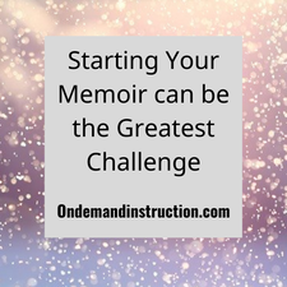 You've decided to write your memoir. You're ready to collect your personal stories with the hopes that they’ll become deeply-cherished family treasures to be passed down for generations. Or perhaps your memoir will reach outside of your family’s intimate circle and affect people around the world, as so many published memoirs do these days. But how does a writer start the process of collecting personal stories? Sometimes a story is working its way to the surface, insisting on being told. You wake up in the morning thinking about that one time when, and you fall asleep running through the details of the event. Every now and then, writers get lucky enough to have a story itching to be written, but much of the time, we need to pick at the surface until we unearth memories worth retelling. As with many activities, getting started can pose the greatest challenge. Many writers agree that the blank page is the most formidable enemy, but once you put a few words on the page, the rest of the story can fall into place. There are a couple different approaches that work well for beginning work on a memoir. One method is to brainstorm a list of 15-20 memories that are waiting to be told. This works well for writers who have stories immediately ready and are ready to set pen to paper without much preparation. However, many writers need more preparation. For these writers, writing prompts can be the more successful and efficient path for writing. The three writing prompts below are from the book Letters to the Future: The Simple Guide for Writing Your Memoir. These prompts intentionally include multiple questions so if the first one doesn’t jump out at you, the next one may. Some writers have multiple stories related to each prompt and can use a single prompt to write several pieces. Use these writing prompts to spark your memory—and then start writing your first few memoir stories. Memoir-Writing Prompt 1. What’s in a Name? What was your full name at birth and what is your name now? What does your name mean? Do you like it? Why did your parents name you that? What did people call you when you were a child? When you were a teenager? Did you ever have a nickname? What was it, and how did you get it? Many families follow naming traditions. The first son may be named after the grandfather and the first daughter after the grandmother. Perhaps children are named for ancestors from several generations ago. Or perhaps parents choose names of famous people, leaders, artists, or religious figures like patron saints. Then again, some families opt for the popular name at the time. In the early 20th century, the most popular boy’s name was John in both the United States and England, so if you have a grandfather or uncle named John, he may have been given the popular name of the time. If you grew up in the decade of Patricias, Heathers, Jennifers, or Madelines, then you know how loved popular names can be. Our names do more than give us a moniker, they define who we are, encapsulate our parent’s mindset, and present us to the world. In some senses, our given names define who we are, while the nicknames we choose for ourselves allow us to re-imagine our place in the world. Our nicknames allow us to rename ourselves and give our friends power over us. Some cultures, like the United States, prefer shortened names to formal ones. Not only is writing a story about your name an engaging addition to your memoir, but it’s a way to start conversation with family about their names. Do you know how your parents chose your name? Is there a story behind how you got your name? What about your last name? Is there a story behind your family name and its significance? The topic of naming can provide a foundation for a fascinating story. Memoir-Writing Prompt 2. Family and First Friends What are the names and birthdays of your parents? What are your favorite memories with your parents? What three words would you use to describe them and why? Did you look up to your parents when you were a kid? What did you admire about them? What did you dislike about them? Who are your siblings? What are they like? How did you get along as kids? Have you lost any siblings? What is your favorite memory with your siblings (or cousins or friends) when you were young? Which kid were you: the smart one, the attractive one, the athletic one, etc.? Why did you get that label? Are your family members your friends or are your friends your family? The people we surround ourselves with define us, guide us, and support us, and they oftentimes are a reflection of who we are. So much about who we are and what we do is connected to our friendships. How have friendships affected you? What stories can you capture connected to your friendships? Memoir-Writing Prompt 3. Who Were Your Ancestors? What are the names and birthdates of your grandparents? What are some interesting things you remember about them? What were their personalities, favorite activities, and memories you shared? How about your great-grandparents, aunts, uncles, cousins, or other relatives? Do you know their names and birthplaces? What were their occupations? Did you ever meet them? What did you hear about them from others? What about them did you like? What stories did they tell you about their past and where they came from? Do you know any ancestors’ names, birthdays, or places of birth prior to your great-grandparents? What countries and cultures did your ancestors come from? Is that important to you? If so, why? When writers compose the stories of their lives, those stories rarely stay put. They wander into family stories, stories with friends, and cultural events. Our stories overlap with those of our ancestors, our friends, and our colleagues. The confluence of stories allows us to connect our experiences to those around us and open up a path for integrating genealogical work within our memoirs. Sometimes, writers have only fragments of stories about their ancestors; integrating those within our own stories as flashbacks, asides, and anecdotes can allow us to tell both stories. In many ways, our ancestors’ stories are the foundation for our stories, because their experiences laid the groundwork for our narratives to take place. As with any type of writing, getting started is usually the hardest part of the process. Once you get the first lines down, then the rest of the story tends to flow more easily. The first draft is never the final draft, so getting the words on the page is the first step in a series to not just collect your stories but to compose your memoir. Buy a copy of Letters to the Future and write your memoir.Related Blog Posts
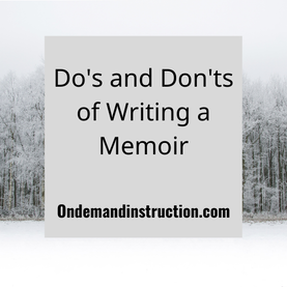 One of the most rewarding projects a person can take on is collecting their personal stories. The process of writing one’s memoir can bring about personal healing, can draw people together, and can preserve the past. Though the process seems straightforward enough, many writers face challenges, some of which can derail their plans to write a memoir. A little memoir writing advice can help put writers back on track. To help you make progress in writing your memoir, follow these simple do's and don'ts: Do Set a Schedule and Stick to It When it is time to do something that will benefit us personally, many of us tend to put it off. We eat pizza instead of a salad, we wait until tomorrow to exercise, and we take care of everyone before ourselves. When it comes to our writing, we put that off too. To be successful, writers have to honor their writing time. It is so easy to push off writing until later or to assume that one must be inspired to be able to write. Instead of falling into the trap of postponing your writing, plan for it. Set aside time that will work consistently with your schedule. Once a week for an hour is the minimum I would recommend. More than that is better if your schedule will allow for it. Of course, some professional writers recommend writing every day, seven days a week, but most of us lack that kind of time, so set aside time every week to write and stick to it. Honor your writing time just as you would a meeting with your boss or a doctor’s appointment, and watch your stories come together. Do Write All Your Stories When writers plan a writing project, they oftentimes specify what they intend to cover before putting pen to paper. Many memoir writers plan to tell the stories of a brief time in their lives: the year of the divorce, their college days, growing up with alcoholic parents, or the around-the-world trip. But, when we begin writing, other stories can emerge. Take the time to jot down those stories when they appear; they could present opportunities to offer backstory, flashback, or context, even if they are outside the intended scope of your memoir. Do Give Your Stories a Chance Sometimes we have a hard time recognizing that our own stories are important and we gloss over them to write stories of our parents or grandparents. Memoirs are interconnected across many people. They transcend time and space, because people grow and change. Try to give your own stories a chance by collecting them, even if your personal stories become the anecdotal tales that accompany the work you are doing to write stories of your extended family. Don’t Avoid Difficult Events Writers may get the idea that they should hide the family secrets, dark memories, and embarrassing moments, but including difficult events can open up opportunities to connect with your readers. One of the reasons readers are attracted to memoirs is the desire to connect with the writer’s life events and learn how they managed challenges. Rather than hiding the dark events of your past, write them. All of them won’t end up in the final draft of the memoir, but the act of collecting them can reveal connections to other stories and themes that could be explored. As well, writing difficult stories can open up writers to different ways of presenting those events. Some writers find ways to present difficult events by using humor or analysis, and this can add another layer of interest to a memoir. Don’t Self-Edit While Writing Writers who struggle to write their stories try to write and edit at the same time, and this method can backfire. Writing and editing use different parts of the brain, as writing is creative and editing is analytical. Switching back and forth slows the writing process dramatically and can cause writers to feel self-critical and insecure about their writing. Instead, write the rough draft of all the stories first. Once you hit the point where there are no more stories to tell, start the editing and revising process. Editing can take significantly longer than the initial writing for some writers, but the more words you have on the page in the rough draft, then the more you have to work with while editing. That can allow more options when deciding which stories to keep, which scenes to drop, and which ones to enhance for the final piece. Don’t Worry Memoir writers can find a way to worry about anything. Will anyone think my stories are interesting? Is my life worth sharing? What if my family doesn’t care? What if my siblings disagree with my recollection of events? What if my writing isn’t good enough? What if I can’t find a publisher? Writing a memoir is a journey of discovery. Even though we lived through our personal experiences, we learn about them, uncover different thoughts and reflections, and come to an understanding of who we are by writing our personal stories. Don't get caught up in what the outcomes may or may not be. Instead, embrace the process. Related Blog Posts
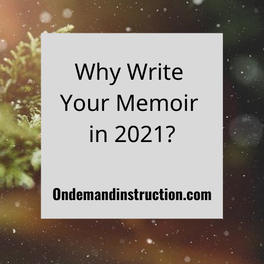 During 2020, you likely went through some kind of hardship. Maybe you lost a loved one, a home, or a job. Maybe you had to transition to interacting with people virtually or to working from home. Maybe you were OK but had to support someone who was struggling. Between the pandemic, protests, political upheaval, and economic uncertainty, 2020 turned out to be a disappointment even to the least affected. So, what did you learn from that experience? I bet that you learned what is important in your life. I bet you learned what you truly value. And I bet you learned to pivot on a pin to be able to persevere through difficulty. After experiencing challenging events, writing about them can help initiate the healing process. Here are five reasons why you should write your memoir in 2021. Writing Helps Organize Thoughts Writing helps us make sense of our thoughts and feelings and can be a conduit for better understanding your experiences. Reflective writing helps the writer first and foremost by allowing a pathway to organize our thoughts. Writing Improves Memory Did you know that writing down your memories improves your memory? I have experienced this myself. When you take the time to write about your experiences, not only can you support yourself by making sense of them but the process can improve your memory and allow you to recall more depth and detail of your memories. Make Your Writing a Gift In most cases, we write for ourselves and for those in our immediate circles. Your writing, especially your memoir writing, is more likely to end up in the hands of friends and family than anywhere else, so make it into a gift of love for them. Write down your life stories with the intention of sharing yourself with those you care for most. Writing is an Exploration of the Unknown The process of writing not only helps the writer make sense of their thoughts but reveals layers of the unknown. We don’t know what stories are waiting to be excavated until we begin digging. As we write, we reveal ideas, stories, information that can be collected and preserved. Write Your Book Many people will say they feel like they have a book inside of them, and most are right. Even if that book doesn’t end up being a New York Times bestseller, many people have a book idea sitting in the back of their minds. The only way to access that book is to start writing. The process of writing is a process of revelation, discovery, and healing. As we engage in reflective, memoir writing, we take part in an opportunity to improve as writers and as people. Watch the video 5 Reasons to Write Your Memoir in 2021 For help getting started on your memoir, check out our book: Letters to the Future: The Simple Guide for Writing Your Memoir Related Blog Posts
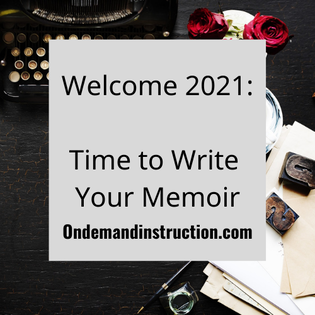
I think everyone would agree that 2020 could have gone better. The list of challenges that popped up during the year strained every aspect of our lives: personal, familial, professional.
Not only that but many creative people found their livelihoods yanked from beneath them as galleries closed, bookstores and libraries postponed events, and theaters went dark. The places we depend upon for creative connection shuttered. As we transitioned to connecting virtually, many people came to terms with the shifting balance that we had to give more and receive less.
So, how can writers move beyond a difficult year? Write about it.
We have known for decades that writing offers therapeutic benefits for people who make time to reflect on their experiences. When we write, all the grief and pain of our lives do not disappear as the ink dries, but the process of collecting our thoughts, feelings, and memories onto paper can lighten the burden. When we write about our experiences, the process can help us to make sense of them. In a similar way that talking through a situation with a friend can bring us some relief, so it goes with writing. Though writing may not offer the full effects of professional therapy, it can improve our relationships with the past. Success! Now check your email to confirm your subscription.
Too, when we write about our experiences, we can improve our understanding of events but we can also improve our memory and ability to remember. As we age, recalling the details of past events can be more challenging than when we were young. When we write about what happened, more details make themselves known. For example, I recently wrote up memories of a friend who passed, and while I was writing I was able to recall not just the details like what we were wearing on eventful days, but I also remembered more events as I wrote. In all, I ended up writing twice as much as I had originally planned.
Writing is good for you. It taps into your creative energy, gives you an outlet for your thoughts and feelings, and provides a process to make sense of the world around you. After surviving 2020, spend some time writing about your experiences. The outcome could be the foundation for a rich section of your memoir.
We all walked away with new lessons learned after 2020.
With the year behind us, now is an excellent opportunity to capture your memories while they are still fresh. As you write, consider how you can integrate lessons learned, revelation of self, and reflections on the events. These elements make for engaging memoir stories. When you share lessons learned, it allows your reader to understand the series of events in your life and how they unfolded. Revelation of self helps your reader to connect to you as a writer. And reflecting on the events gives you, the writer, opportunity to analyze the events in retrospect which can allow for greater analysis of what happened.
We made it through 2020 in one piece, so now it is time to put those stories together. Start by thinking of one event that happened in 2020 and write about that. Perhaps you will write about when you first realized that Covid was a pandemic. Perhaps you will write about the political division in communities. Or perhaps you will write about the adjustments you made to communicating with people virtually.
Start with one event and write about it. Then move onto another event. The writing can be very short; a page per story is plenty to get things started. Once you've written about the year behind you, keep going. The process of collecting your stories can take some time, but the memories tend to bubble to the surface as you are working. And the result can offer a treasure trove of memoir material. For memoir writing prompts, check out the book, Letters to the Future: Related Blog Posts
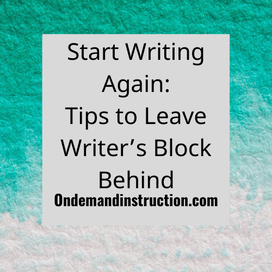
Like the rest of the world, I spent the last few months with limited contact with my community. My kids are attending school online, I am working remotely, and our summer travels are limited to trips to the grocery store and bike rides at the park.
During this time, I have not written much. In fact, I found it challenging just to read. Usually I read twice a day, but I didn't for the first two months of my isolation. I returned to reading in slow steps, but eventually, the newspaper and I got reacquainted and books and I found each other again. After my anxiety about the new routine passed, the writing started to return. It didn’t arrive as an explosion of creativity, though that would have been wonderful. It came back in trickles. The return of writing reminded me to take it easy when reengaging, and I had to take the advice I had given dozens of writing students in the past: start small to start writing. Reengaging with writing after time away from the page can bring the dreaded writer’s block: the feeling of not knowing where to start. Every writer has experienced writer’s block at some point, and it’s no fun. But writers can take some simple steps to overcome writer’s block and start writing again. Success! Now check your email to confirm your subscription.
4 Ways to Overcome Writer's Block and Start Writing Again
1. Six-Word Memoir The six-word memoir is just what it sounds like: It's a personal story told with just six words. The legend goes that a journalist challenged Hemingway to tell a poignant story with just six words, and in typical Hemingway style, he accepted and wrote: Baby shoes for sale. Never worn. Those six words give you a sense of the story. You get tone, character, situation. A whole story can be told with just six words, and many have been; in fact, there are now collections of six-word memoirs. If you're ready to start writing, try a six-word memoir to start. You can think of the overarching theme of your life and write a six-word memoir about that, or you can focus on a smaller story and capture a single event in one line. Here are a few examples: Things didn’t turn out as expected. Single girl, ginger cat, vintage guitar. She said yes then ran away. I should have taken a left.
2. Collect Snapshots
When you start writing again, you don’t have to tackle a novel. Starting out small tends to be best for getting back into a creative routine. Take time to collect snapshots rather than whole stories. Composing a small scene, a conversation, or a description of a setting can go a long way toward reigniting your creative energy. Here are a few ways you can collect snapshots:
3. 50-Word Stories
Limiting the amount of space for a story can be helpful in getting a story down on paper, whereas an open-ended story can take ages to write. A 50-word story must be exactly 50 words (not 49, not 51) and can be useful for helping writers focus on the value of each word. 50 words may sound limiting, but the limit can help a writer get started and allow for a short creative burst, which can help to establish a writing routine. Here are a couple of prompts to use when writing a 50-word story:
4. "What If" Questions
Many great novels, stories, and films began with a writer asking a "what if" question. I recently read a vampire trilogy. The author said she wondered what types of jobs vampires would need to have considering their long lives. That question served as the inspiration for her trilogy (as it turns out vampires become research scientists and medical doctors). Create a list of five "what if" questions that are interesting to you. Here are some "what if" questions to get you started:
You can see how asking a "what if" question can spark some interesting ideas. This kind of thinking can open up new avenues for your stories, poetry, or essays. Asking "what if?" encourages risk-taking in writing and engages the creative mind in a different way. Every writer spends time away from the page. People get sick, work takes too much time, other priorities creep in and take precedence over our schedules—and writing falls to the wayside. After that downtime, it can be challenging to get back into the swing of things. Writer's block looms large. Using these simple techniques, writers can re-establish their writing practices and get back to writing. Related Blog Posts
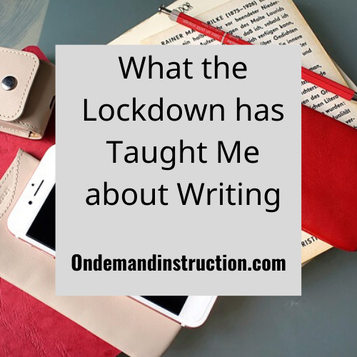
During the last two months, I haven’t written a word.
I've had several slow-moving projects in the works: a novel about a person who receives postcards from the afterlife (it’s not as weird as it sounds), my memoir written for my kids, a how-to-dress book for my daughter, memory books of the toys my kids played with and their funny antics, and a series of short stories that I have been sending out to magazines. But since the pandemic’s beginning, I haven’t had the energy to write. I have always been a highly productive person and typically work from the moment I wake up until just before bed. Watching a lot of TV or goofing off has never been part of my routine. I’m the gal who grabs a cup of coffee and goes straight to my computer. So, why can’t I write? Like most adults, I have been through many emergency situations—illness, loss of income, and heartbreak—but the pandemic has hit me differently. After taking time to reflect on this experience, I identified a few adjustments that have helped me get back into the swing of writing.
Adjust the Schedule
During the last couple of months, my mind has been racing, and that distracts me from my work, my writing, and my routine. I didn’t realize this until talking to a friend. When she described her difficulty sleeping, I realized I wasn't the only one. I changed my schedule right away and it made all the difference. By getting up earlier and sticking to a schedule, I was able to focus better. Switch Up the Sense of Control Admittedly, I can be a bit controlling (my husband would probably say a bit of a control freak). When the pandemic started, I think my initial fear was about my lack of control: everything was out of my hands. But I have been staying home, wearing a mask, and limiting my trips, and that has added significantly to my confidence and given me a greater sense of control. Now, the limited travel doesn’t bother me at all, and my production has been increasing over time.
Show Some Gratitude
Though I am not the best at showing gratitude, when I have recognized the blessings in my life, I am better able to focus on the tasks at hand. All of my problems are of the first-world, middle-class variety. I am working from home on a new computer with reliable internet. We have enough computers that every person in our home has one of their own to use, so no one is forced to share. We have food, jobs, and our health. Life is pretty good. Get Dirty I think every person I’ve talked to in the last month is gardening. Even the people who don’t like gardens are starting a plot of vegetables or a window box of flowers. It seems like, as we are all longing for our former normalcy, we are returning to simple activities like gardening. Getting into the garden gives us something to look forward to, something to nurture, and a healthy dose of vitamin D every time we put in the work.
Take In New Information
Like many people, I spent the first two weeks of the pandemic watching Netflix. I think I was binge-watching The West Wing (a well-written political drama if you want to see good-quality character development and a quick-paced plot with never-ending complications). But after a couple of weeks, I couldn’t sit that long and had to seek out other ways of filling my brain with information. Though I couldn’t read for the first few weeks that turned around for me and when it did, reading afforded me a huge relief. I added the paper delivery to my digital newspaper subscription, and thank goodness I did, because I am back to spending Sunday morning reading the paper for two hours, which is a joy in itself. I came back to reading but only connected with the lighter stuff at first. No research, no economics, no professional journals. I started with a couple of my kids’ middle grade novels and a nonfiction series the kids like. Then I re-read On Writing by Stephen King for probably the fourth or fifth time. It’s one of those books that I come back to because I get a new idea each time I read it. Reading came back slowly, but when it did, it provided the soothing herbal tea remedy that I needed to get myself back on track.
Let Go to Move On
The cracks in the system reveal deeper truths. Though the lockdown has been incredibly challenging for millions across the country, its effects reach across every demographic, and even healthy, employed people feel the struggle. I think that for me, letting go of my desire to live in the pre-pandemic manner helped me reconnect with a new routine, and that helped me get back to writing again. I am not yet writing in the same way that I was before the pandemic started, but I am finally writing. The writing is slow, it lacks style, and it comes out in ribbons rather than whole cloth, but it is coming. Whether we'll return to our pre-pandemic lives anytime soon, I have no idea. I do know that what is ahead of us will take an incredible amount of bravery, camaraderie, and community. And for writers, if we are able to put words on the page, we are more likely to address what is coming with grace rather than fear. I am certain that in the coming months, I will continue to grow and learn, but for right now, I am out of the woods. I am reading again and writing a little bit. The biggest takeaway of my experience is that if I can put just a few elements in place—a consistent schedule, gratitude, reading, and so on—then I can reconnect with the writing and get the words on the page. Related Blog Posts
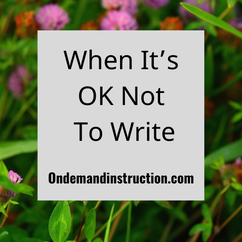
For the last 20 years, I have taught writing. Over this time, I have talked a lot about the writing process, a series of steps writers take to create a piece of writing in a manageable amount of time. It generally follows these steps: brainstorm, outline, draft, edit, and publish.
The writing process can help a person get from an idea to a completed essay, but it doesn’t take a writer through the day-to-day work of being a writer.
Writers do a lot more than follow a series of super-organized steps to polish an essay. We live our lives, we go to work, we find love, we appreciate the outdoors, we fall down, and we strive to achieve life goals. In between all of these life events, we write.
But what happens when life falls apart? What happens when we don’t feel like writing? How about when we have nothing to say? What about those days when the words aren’t coming to us, when we have the dreaded "writer's block"? What do we do then? Subscribe to the Writer's ListGet the writer's blog delivered to your email. Attain an effortless writing process with tips and tricks that support your love of writing. Success! Now check your email to confirm your subscription.
I think there is a writer’s cycle that more closely mimics the reality of the writing life. It goes something like this:
First, you collect information. This includes reading, observing, and engaging with life. Next, you practice. This includes attending classes, writing in a writer’s notebook, and doing practice prompts. Finally, you write, edit, rewrite, and revise each piece until it is publishable.
In the years that I have worked with writers, I have heard many people disappointed at themselves for not writing all the time. I actually think not writing at times is OK. It's part of the greater process that writers go through.
We don’t always have something to say. We don’t always have something worthy of a story or an essay. But we do always have a place within the writer’s cycle, and we can engage wholeheartedly with another part of the process. Reading hones our writing skills. It puts us in touch with professional writers, it gives us published pieces to evaluate and understand, and it connects us to literary works. Observing and engaging with life allows us opportunities to see situations from different viewpoints, think about how characters would react in different scenarios, and better connect our writing to how real people interact.
As writers, we improve through practice. Every time we take a class, we learn something new. Every time we drop an idea in our writers’ notebooks or write a practice prompt, we play with ideas without feeling obligated to complete a story for a publication.
Once we have collected and practiced, we write. And in those moments when we have something to say, on those days that the words are flowing and the story is laid out before us, we can collect our thoughts on paper. Those are the situations where we can write, edit, and revise until we produce quality writing that connects to other people, which speaks to our readers. So, if today the words aren’t coming to you, read a book. If you don’t feel inspired to write, go out and observe the world. If you feel cooped up or bored or lonely, take a writing class and do some practice prompts. And when the words have built up in your creative bank, you will be ready to write. Related Blog Posts
|
About the SiteWelcome, Writers! Archives
September 2023
|


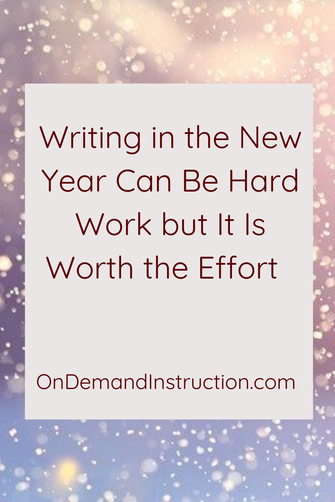
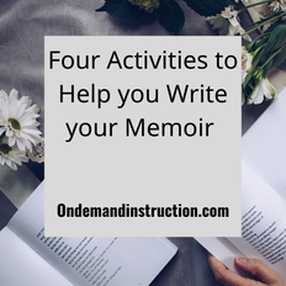
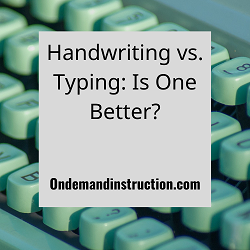
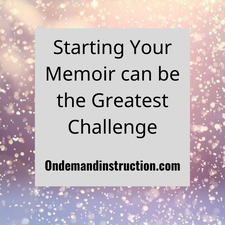
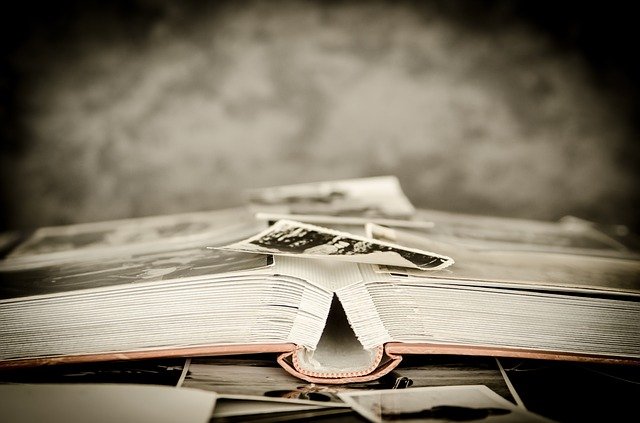
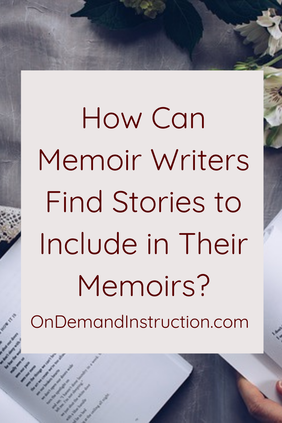
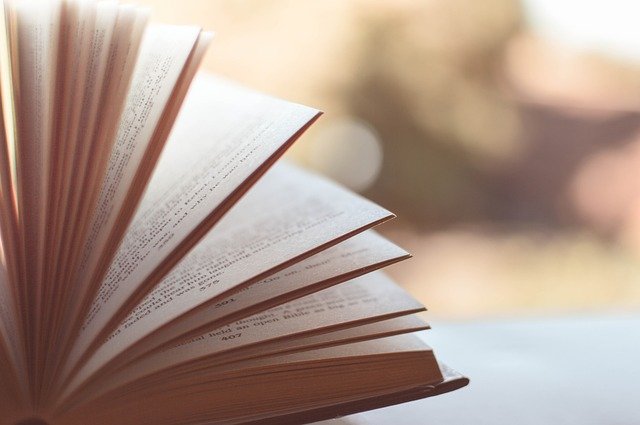
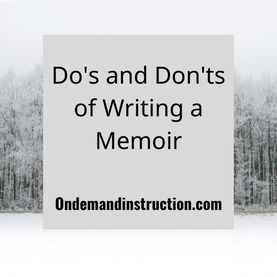

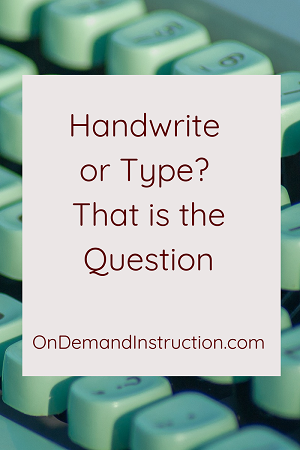


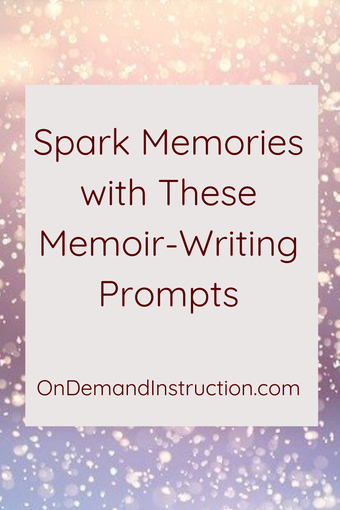
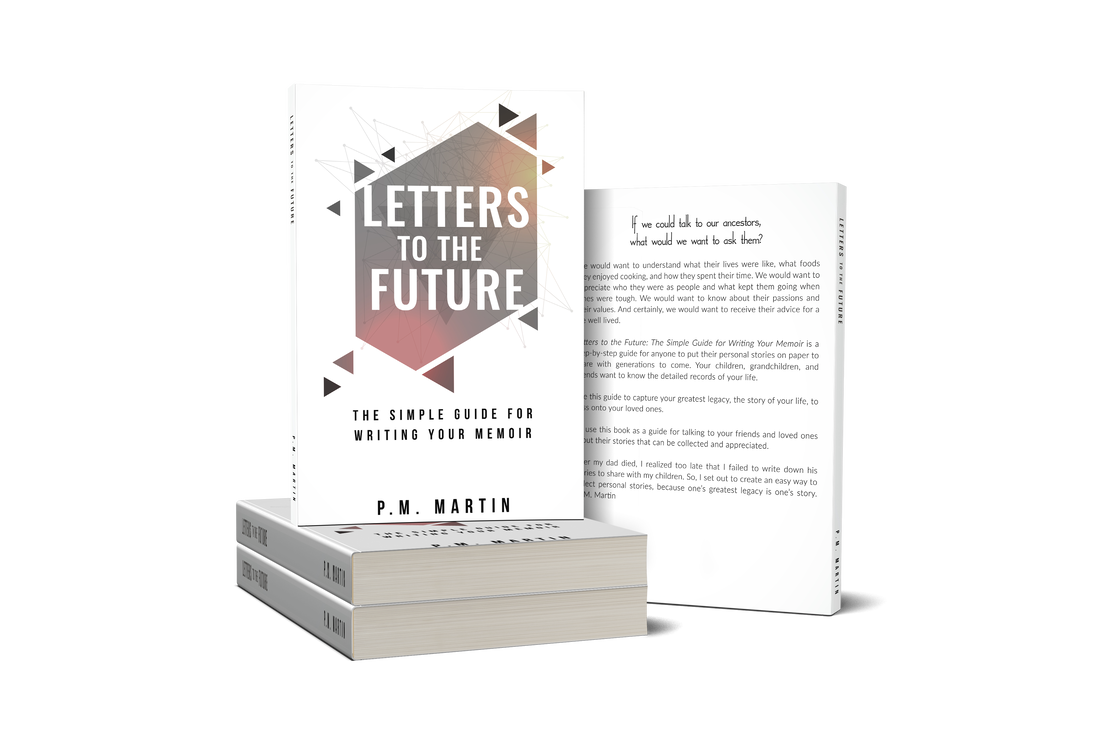
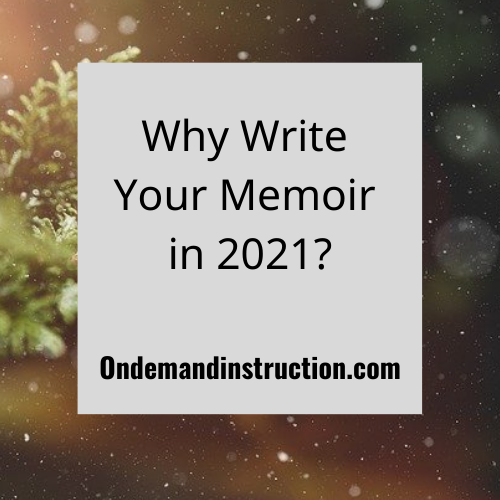
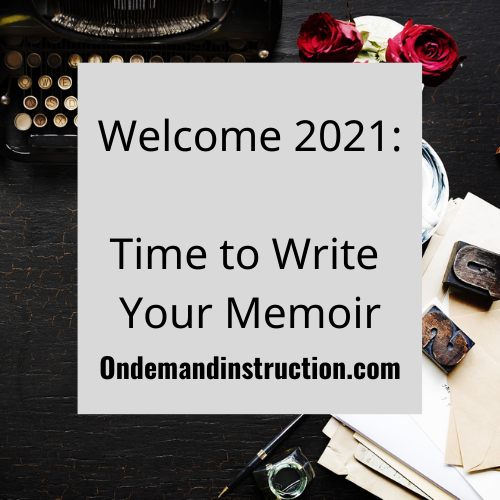
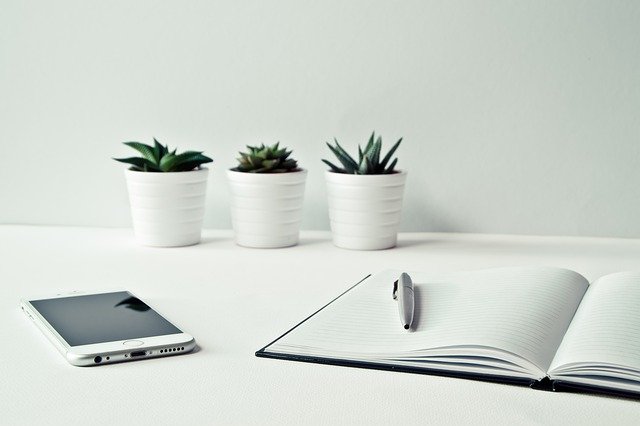
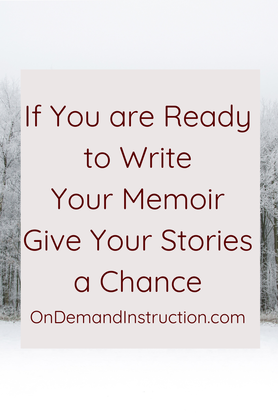

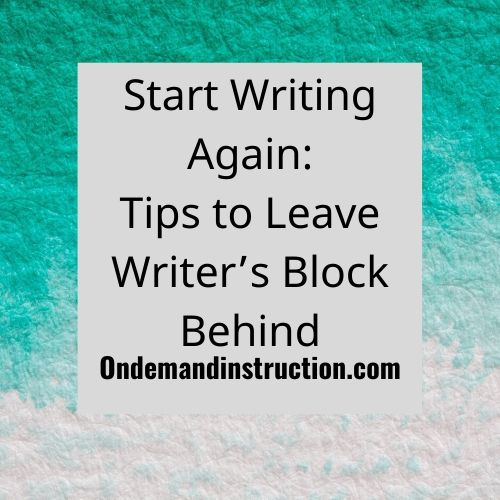
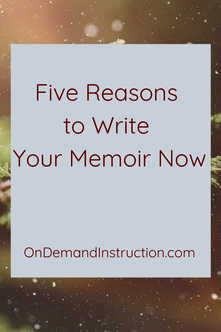
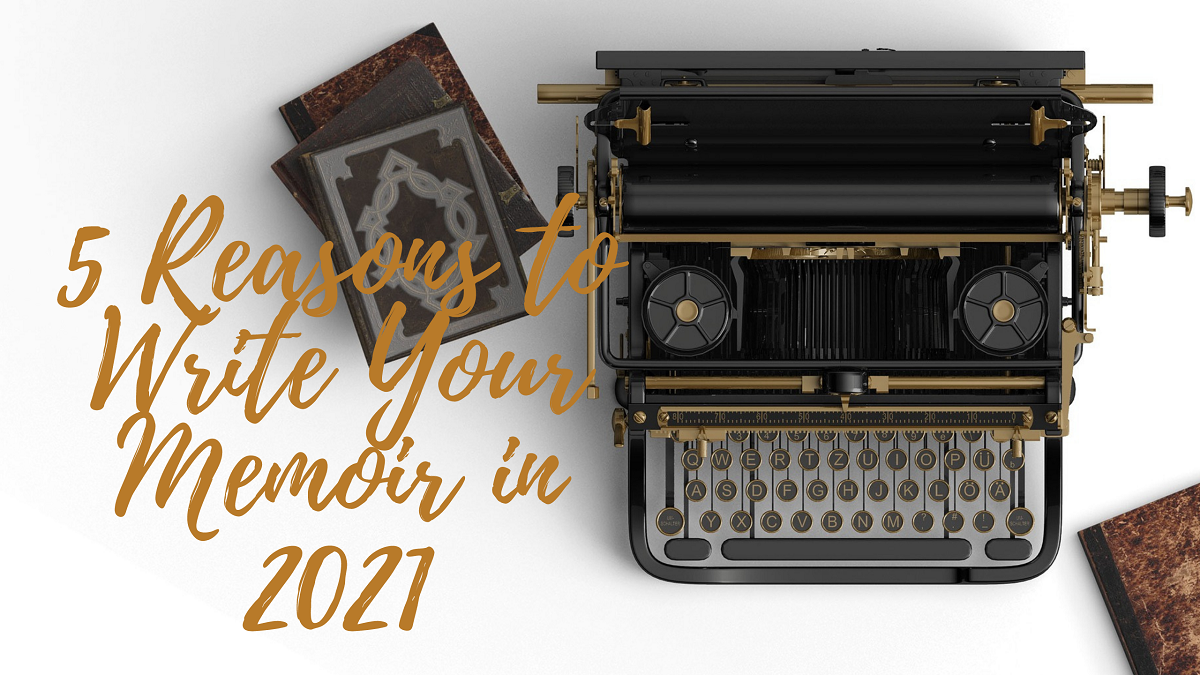
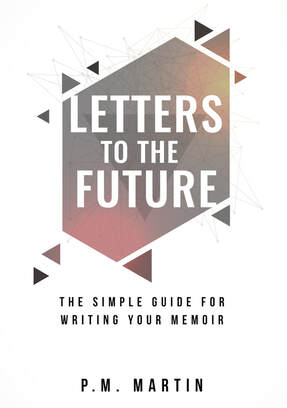
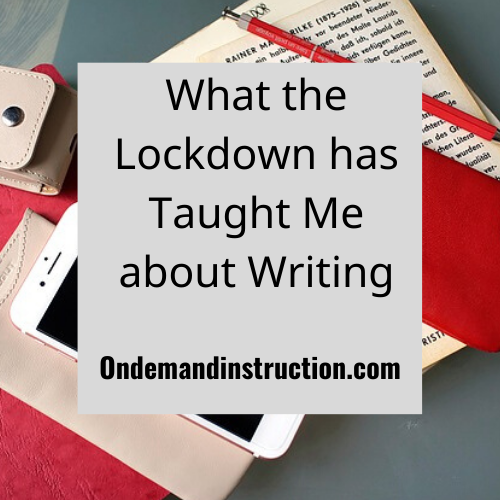
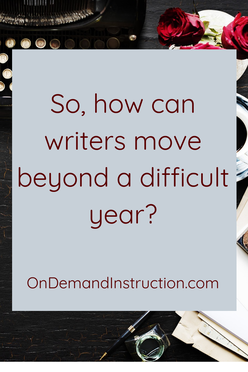
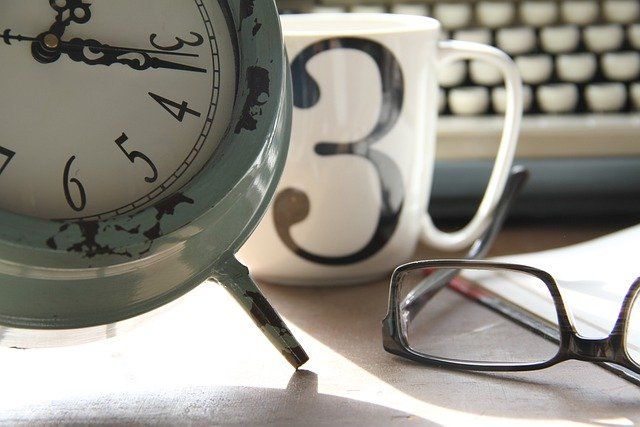
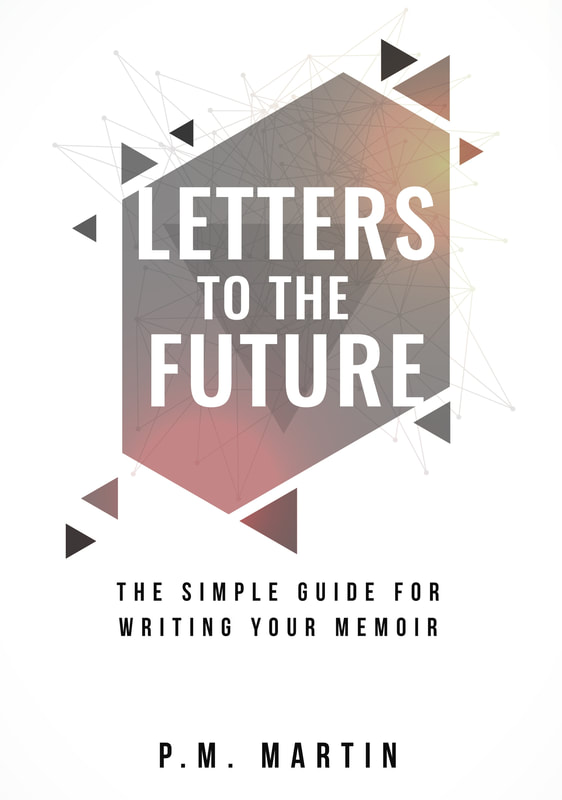
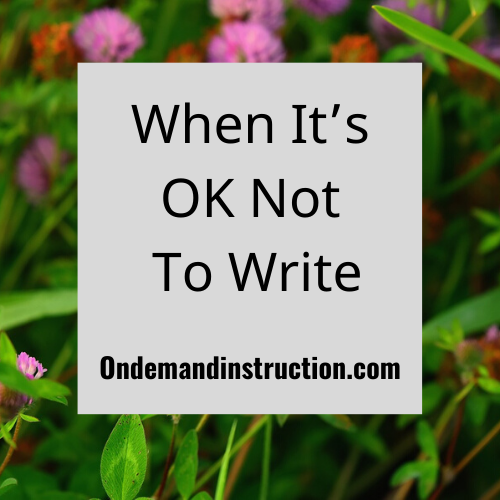


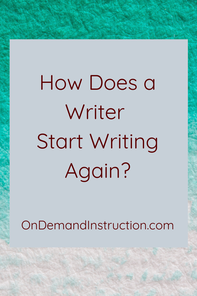
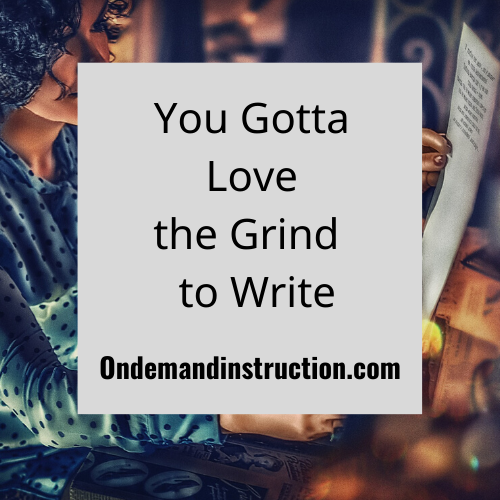

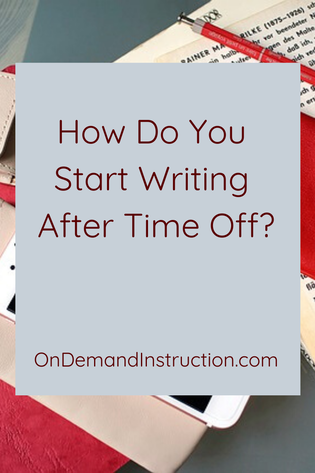
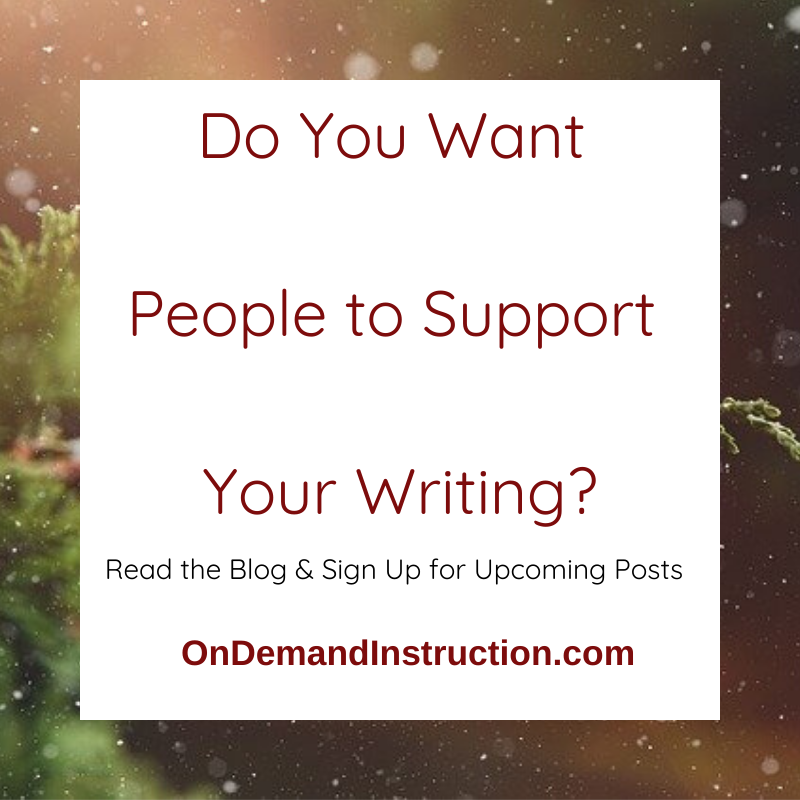

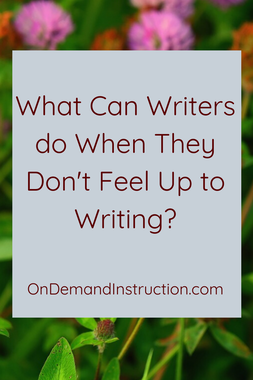
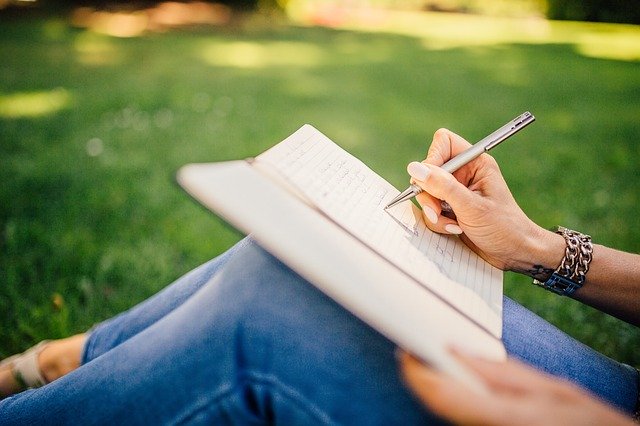
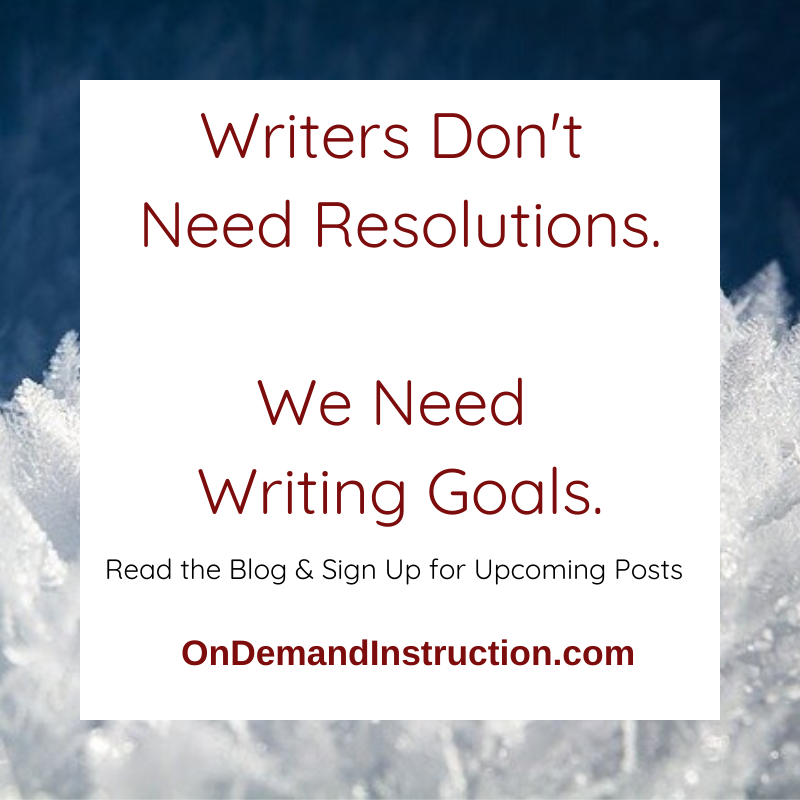
 RSS Feed
RSS Feed